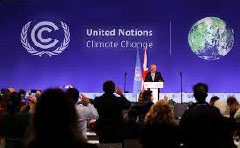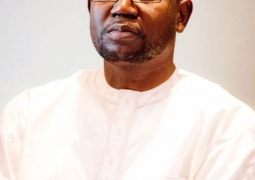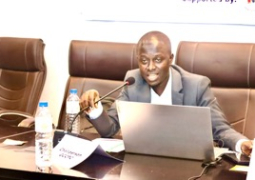
UK International Champion on Adaptation and Resilience for the COP26 Presidency Anne-Marie Trevelyan will lead the meeting, as the world faces increasingly frequent and severe extreme weather and natural disasters.
In 2021 alone, climate change is believed to have contributed to devastating drought in southern Madagascar, flash flooding in Germany and China, and wildfires in Greece and the US, leading to loss of life and livelihoods. Developing countries and small island states are the most acutely at risk.
Even if we get on track to limit global warming to 1.5 degrees, we will still need to deal with increasing impacts like these. More investment and faster action to help vulnerable countries adapt to climate change and minimise and address loss and damage is needed well before 2030 to prevent further catastrophe and suffering.
To support global efforts to tackle the impacts of climate change, today the UK will announce new funding totalling £290 million, including:
- £274 million to help countries across Asia and the Pacific better plan and invest in climate action, improve conservation and deliver low carbon development;
- £15 million for the Adaptation Fund which backs developing countries to lead action where they most need it;
- £1 million to support delivery of faster and more effective global humanitarian action, including in response to climate-related disasters.
This comes in addition to almost £50 million in new UK support announced in the first week of COP26 to help small island states develop resilient infrastructure to withstand climate shocks and support capacity-building for their access to funding and technical solutions.
Speaking ahead of yesterday’s event, Anne-Marie Trevelyan, UK International Champion on Adaptation and Resilience for the COP26 Presidency, said:
“We must act now to stop climate change from pushing more people into poverty. We know that climate impacts disproportionately affect those already most vulnerable.
“We are aiming for significant change that will ultimately contribute to sustainable development and a climate resilient future for all, with no one left behind.”
CDC, the UK’s development finance institution, will also announce plans today to join a group of donors in committing to substantially increase investments in climate adaptation and resilience to support vulnerable developing and emerging countries. This builds on the launch last week of a new ‘Clean Green Initiative’ by Prime Minister Boris Johnson to help developing countries take advantage of green technology and grow their economies sustainably. To support this, the UK will deliver over £3 billion in climate financing over the next five years, including £200 million for a new Climate Innovation Facility to scale-up technologies to help deal with the impacts of climate change, such as drought-resistant agriculture and sustainable forestry, in markets where private investors have been reluctant to take on the risk alone.
Today’s UK announcements build on new pledges amounting to billions of pounds in support for vulnerable countries from other developed nations, including Australia, Canada, Denmark, Japan, New Zealand, Norway, Switzerland and the US. Further pledges are expected today.
Alongside new state commitments, today’s event will also see representatives from frontline communities given a platform to share their experiences of climate impacts and showcase solutions being implemented on the ground.
Emily BohoboN’ Dombaxe Dola, facilitator of the Adaptation Working Group of the official youth constituency to the UNFCCC, YOUNGO, will speak at today’s event. She said:
“I was drawn to climate action after seeing first-hand the impacts of climate change on local coastal communities in Senegal, both impacts already there and those yet to come.
“It is the socially marginalised and geographically vulnerable across both Northern and Southern societies that already suffer the most due to natural disasters and shifting weather patterns, from working-class and refugee communities, through to people with disabilities, the elderly, women and young girls.
“Yet, I have encountered countless displays of resilience by these communities and local actors. Now it is time for governments and donors to level up on equitable finance and plans for loss and damage and for adaptation.”
Building on existing collaboration as co-chairs of the Adaptation Action Coalition, the UK and Egypt are expected to confirm plans to work together to drive further action on adaptation ahead of the next UN climate change conference in 2022.





